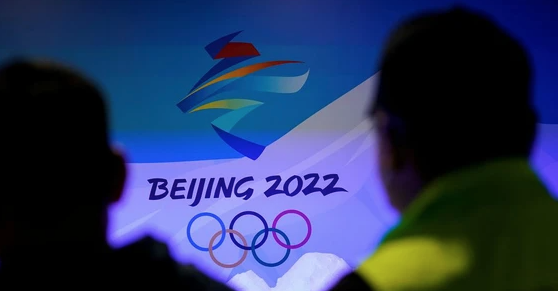‘Diplomatic boycott’ of the Beijing Olympics isn’t a big step, but it will have to do
Terry Glavin is an author and journalist.
Original article: https://ottawacitizen.com/opinion/glavin-diplomatic-boycott-of-the-beijing-olympics-isnt-a-big-step-but-it-will-have-to-do
So, as things have turned out, the democracies declaring their intention to boycott February’s Winter Games in Beijing had grown numerous enough by Wednesday for Justin Trudeau’s government to include itself by hiding in the crowd and hoping Beijing wouldn’t particularly notice. That’s what the Trudeau government usually does whenever it becomes unavoidable for Canada to adopt some multilateral standpoint that might upset the Chinese Communist Party.
The state of play at the time was that American officials wouldn’t go, and neither would officials from the United Kingdom, Australia or New Zealand, or from gallant little Lithuania, the first country to show some backbone in the matter. Following last summer’s European Parliament vote supporting a boycott in response to Beijing’s brutal evisceration of Hong Kong and its attempts to wholly obliterate the Uyghur people of Xinjiang, quite a few European countries should be expected to declare their intentions to join the boycott any day now.
This isn’t a proper boycott, of course, but rather a “diplomatic” boycott, which allows Olympic athletes from the democratic world to compete while sparing their elected leaders the embarrassment of being physically present at the outlandishly extravagant propaganda spectacle that Xi Jinping’s genocidal police state will want to make of the event.
Even so, a diplomatic boycott will have to do, as will U.S. President Joe Biden’s signature foreign policy Summit for Democracy, being convened virtually this week. This isn’t a proper democratic summit, but rather a simulacrum of the necessary alliance demanded by this pivotal and painful moment in democracy’s worldwide decline, with 2021 limping to a close in circumstances even worse than 2020.
Last year was the 15th year of democracy’s global retreat from the onslaught of tyrannies such as China, Russia and Iran, and from internal rot, disunity and ennui. The year 2020 was far and away democracy’s worst year in the long rout that began in 2006.
And here we are, with Beijing throwing its weight around by espionage, Belt-and-Road debt traps, disinformation campaigns, ruthless trade coercion and persistent threats to invade Taiwan. Hardly a day passes now without some new revelation about Beijing’s depravity. Just this week, the U.S.-based Tibet Action Institute released a report relying on the Chinese government’s own data showing that the Xi regime’s deepening repression in Tibet includes a vast residential-school system that imprisons eight out of every 10 Tibetan children, torn from their families, uprooted from their communities, their language and their culture.
To turn things even darker, Vladimir Putin is calling up reservists and massing as many as 175,000 troops near the border with Ukraine, setting the stage for what U.S. intelligence agencies warn could be a full-on invasion by early next year. This would amount to a crisis far more dramatic than Putin’s 2014 annexation of Crimea and incursions into Donbass, which have already cost 14,000 lives. On the upside, Europe appears to be finally coming around to seeing things Biden’s way, with several EU countries bracing themselves for a coordinated response that would shut off Russian natural gas exports and deny Moscow access to the international banking system. A bit limp, but it will have to do.
It’s also to the good that the U.S. State Department has extended a Summit for Democracy invitation to the usually ignored island nation of Taiwan, the country that Mao Zedong insisted be expelled from the United Nations in order for the Peoples Republic of China to take its place in the General Assembly and on the UN Security Council, in 1971. On the Freedom House global ranking of democracies , Taiwan comes in at 94 out of 100. The United States now comes in at 83, well behind 60 other UN member states.
In an assessment similar to the Freedom House rankings, the Stockholm-based International Institute for Democracy and Election Assistance has added the U.S. to its annual list of “backsliding” democracies, for the first time in half a century. The electoral defeat of Donald Trump hasn’t slowed the American decline. Since Trump’s defeat, Trump-supporting state legislatures have redrawn electoral maps in gerrymandering exercises that favour the Republican Party, and 19 states have passed laws making it more difficult for citizens to vote.
Canada still ranks in the top tier of the world’s democracies, along with countries such as Sweden, Finland, Costa Rica, Uruguay, Portugal, Ireland and Japan. But Canada’s trade policy is notoriously opportunistic, undermining the democratic solidarity necessary to resist trade coercion, especially to the advantage of China, and to the detriment of Canada’s democratic allies.
Last year, for instance, China began to punish Australia with arbitrary trade blockages after the Australians called for an independent investigation of the origins of the COVID-19 epidemic in Wuhan. When China blocked Australian coal imports, Canada stepped in, hiking coal exports to China by 21 per cent. After China punished Australia with tariffs on barley, Canada also took advantage, hiking barley exports to China by 18.5 per cent.
Japan, however, has shown a remarkable capacity for democratic solidarity. Last month, former Japanese prime minister Shinzo Abe warned that a Chinese attack on Taiwan would meet Japan’s stringent conditions for the resort to military force. Abe, a major influence in Japan’s ruling Liberal Democratic Party, warned that Beijing’s belligerence, left unchecked, would lead to China’s “economic suicide.” When China put the squeeze on Taiwan last year by banning exports of Taiwanese pineapples, Japanese shoppers responded with a buying spree that more than took up the slack, causing an eight-fold surge in Taiwanese pineapple exports to Japan.
That’s heartening, but it’s small stuff, and a major hurdle standing in the way of a united global democratic front is that its leadership will inevitably fall to the United States, where democracy is dramatically backsliding. Just the invitation list for Biden’s summit reveals deep tensions between the need to form a viable, collaborative democratic bloc and the Biden administration’s own interest in maintaining and shoring up the United States’ various allies of convenience.
Fortunately, the U.S. resisted the temptation to invite Recep Tayyip Erdoğan’s autocratic hybrid Turkey, a key U.S. ally and a member of NATO. Also quite properly left off the summit invitation list was Hungary, an EU member. But the governments of India, Poland and Brazil were invited, despite their backward lurch in democratic customs. Absurdly, Pakistan was invited, while Bolivia was not.
It’s these internal contradictions that most acutely complicate the democratic world’s capacity to mobilize and marshal its resources in its own defence. The staggering heft of advertising and corporate sponsorships far outweigh all the feeble appeals to the “Olympic spirit” that are making the rounds as justifications for granting Beijing impunity for its outrages against decency and international norms of behaviour.
A “diplomatic” boycott is not a proper boycott, and Biden’s Summit for Democracy isn’t a proper democratic summit.
But for now, they both will have to do.





Leave a Reply